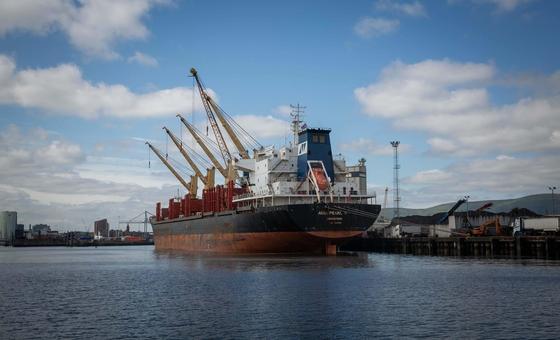In a new study, the UN Conference on Trade and Development (UNCTAD) estimated that over the past two months, the volume of trade through the Suez Canal has fallen by a whopping 42 per cent.
“With major players in the shipping industry temporarily suspending Suez transits, weekly container ship transits have fallen by 67 per cent, and container carrying capacity, tanker transits, and gas carriers have experienced significant declines,” it said.
Houthi rebels in Yemen began attacking ships using the vital waterway as an act of solidarity with Gaza and protest over Israel’s offensive. In response, a US-led coalition has launched airstrikes against Houthi targets at sea and on land.
Panama Canal
But it’s not only geopolitics that’s to blame. At the same time transits through the Panama Canal have plummeted 49 per cent compared to its peak, due to dwindling water levels as a result of a severe, climate-change-induced drought.
A vital artery connecting the Atlantic and Pacific Oceans, the Panama Canal is particularly important for the trade between countries on the west coast of South America, and for links between Asia and the western United States.
Vulnerable populations, especially in landlocked and developing countries could bear the brunt of the impact on the two key trade routes, potentially increasing their living costs and reducing access to essential items.
Environmental cost
Ships avoiding the Suez and the Panama Canals and seeking alternative routes, translating into longer cargo travel distances, rising costs and insurance premiums, and increasing greenhouse gas (GHG) emissions.
For more than a decade, the shipping industry had adopted reduced speeds to lower fuel costs and their carbon footprint, according to UNCTAD.
However, due to the interplay of conflict and climate shocks, ships have been authorized to speed up – leading to higher fuel consumption and emissions.
For instance, a Singapore-Rotterdam (Netherlands) round trip avoiding the Suez Canal/Red Sea route could result in up to 70 per cent increase in GHG emissions.
Far-reaching implications
UNCTAD underscored the potential far-reaching economic implications of prolonged disruptions in container shipping, threatening global supply chains and potentially delaying deliveries, causing higher costs and inflation.
Energy prices are surging as gas transits are discontinued, directly impacting energy supplies and prices, especially in Europe.
Global food prices are also expected to take a major hit due to higher freight costs.
“Disruptions in grain shipments from Europe, Russia, and Ukraine pose risks to global food security, affecting consumers and lowering prices paid to producers,” UNCTAD warned.
Shifting patterns
The UNCTAD study also noted a shift in transport patterns, such as in the United States, where demand for rail transport services between the coasts has surged in recent weeks.
Major Pacific ports such as Los Angeles and Long Beach in west are now using rail routes vs. more costly and unreliable sea routes.
Major changes are afoot in the trading of commodities too. For example, grain shipments to Egypt are being sourced from Brazil or the US instead of Ukraine, while Russian oil shipments have becoming increasingly focused on India and China instead of Europe.

